Politics
/ArcaMax

Commentary: The season to remember we're still one nation
Every year around this time, the noise starts to drop. The pace eases a bit. Families gather, neighbors reconnect, and people who disagree on just about everything still manage to pass plates across the same table.
Something about late November into December nudges us toward reflection. Whatever you call it — holiday spirit, cultural memory,...Read more

Commentary: US needs immigrants to sustain the health care workforce
As Americans gather for holiday celebrations, many will quietly give thanks for the health care workers who keep their families and friends well: the ICU nurse who stabilized a grandparent, the doctor who adjusted a tricky prescription, the home health aide who ensures an aging relative can bathe and eat safely.
Will most of us notice how many ...Read more
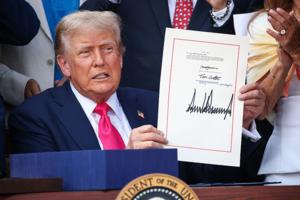
Commentary: Prosperity and philanthropy reborn -- The conservative way forward
Much has been written about the One Big Beautiful Bill Act (OBBBA) since it was signed into law last summer, but one of its more interesting provisions has been somewhat overlooked: the expansion of charitable contribution benefits for all taxpayers, which allows all Americans to potentially lower their tax bills by giving to qualified ...Read more

Commentary: New mothers are tempted by Ozempic but don't have the data they need
My friend Sara, eight weeks after giving birth, left me a tearful voicemail. I’m a clinical psychologist specializing in postpartum depression and psychosis, but mental health wasn’t Sara’s issue. Postpartum weight gain was.
Sara told me she needed help. She’d gained 40 pounds during her pregnancy, and she was still 25 pounds overweight...Read more

Commentary: Listen up, Trump supporters!
I understand your anger. And that anger is justified. I, too, am angry at the Democratic Party for turning away from its traditional role as the supporter of the American worker.
After having been neglected and disappointed by Democratic politicians for decades, you responded to Donald Trump's full-voiced support for your grievances against the...Read more

Editorial: Give us a home where the bison roam
Before Illinois became a state anchored by a sprawling metropolis, it was a humble prairie. Flat, yes, but that open horizon offered the perfect home for creatures big and small to graze and lope.
Among those creatures were bison, giants that called this place home for thousands of years until we humans edged them out of their habitat, ...Read more

Noah Feldman: The Supreme Court generals failed their troops this year
This will go down as the year when the president of the United States openly went to war against the rule of law. I’ve been writing about the many battles of this war throughout 2025.
In this column, I’m going to zoom out and take a broad view of the overall state of the battlefield, with special attention to the main combatants defending ...Read more

Editorial: More math, not less, will lead students to succeed
A group of middle school girls is puzzling over a pie chart about reading habits in the U.S. Their “math designer” stands at the front of the room, encouraging students to share what they “notice and wonder.” A data talk, as it’s known, is meant to empower students to ask questions about the data-filled world around them and embrace ...Read more
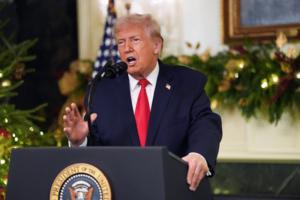
Commentary: Who can afford Trump's economy? Americans are feeling Grinchy
The holidays have arrived once again. You know, that annual festival of goodwill, compulsory spending and the dawning realization that Santa and Satan are anagrams.
Even in the best of years, Americans stagger through this season feeling financially woozy. This year, however, the picture is bleaker. And a growing number of Americans are feeling...Read more

Lisa Jarvis: Testosterone isn't a magic cure-all for middle age
In the last year or so, health influencers — and a lot of women on social media — have talked up testosterone therapy as a kind of perimenopausal panacea. They promise boundless energy, crisper thinking, better sleep — and, most of all, a roaring libido.
Sounds awfully tempting.
But like a lot of things when it comes to women’s health,...Read more

Steve Lopez: Nearly every house on their west Altadena block was incinerated. Nearly everyone will be back
LOS ANGELES -- Nearly one year after the Eaton fire incinerated their block in west Altadena, neighbors gathered again, greeting one another with hugs that spoke to a bond forged by shared loss.
They had agreed to meet with me at the same burned-out lot where we'd gathered in February, and talk again about what they once had, what they lost, ...Read more
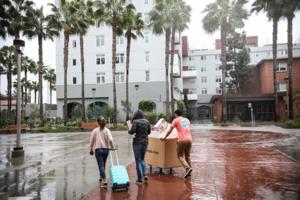
Commentary: UC should go back to considering standardized tests in admissions
At the sixth-ranked American public university, UC San Diego, a quarter of students taking a remedial math course placement exam couldn’t solve for x in this equation: 7 + 2 = x + 6. A third couldn’t subtract 1/3 from 3/4, and fewer than half could round a six-digit number to the nearest hundred, according to the school’s recent viral ...Read more
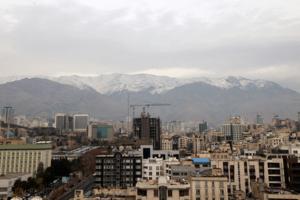
David Fickling: A city without water is a harbinger of a thirsty planet
The history of our cities has been written in water.
In Mesopotamia, Egypt and the Indus valley, the first urban settlements were built around irrigated farmland. Flooded terrace fields for rice, corn and quinoa accompanied the spread of civilization in East Asia and the Americas. Without water, the megacities that will define the 21st century ...Read more
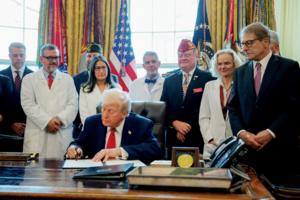
Michael Hiltzik: Here's how Trump gets away with using questionable numbers
Much attention has been focused on Donald Trump's use of words — that is, his peculiar style of oratory. But more attention should be paid to another feature of his discourse: his use of numbers.
Trump doesn't use numbers the way most of us do, as "things that can be added, subtracted, multiplied, and divided," as Columbia University ...Read more
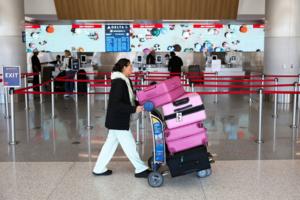
Lisa Jarvis: The flu is trying to ruin your holiday. Don't let it
As travelers wedge themselves into planes, trains and automobiles for holiday trips, there’s a good chance they’ll be joined by an unwanted passenger: a new flu strain that seems intent on derailing the season.
With flu cases in the U.S. starting to take off, there are still some steps people can take to avoid — or at least lower the risk...Read more
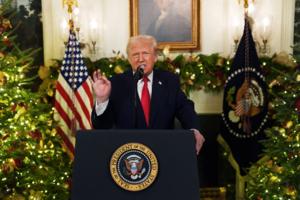
Anita Chabria: Beneath the rambling, Trump laid out a chilling health care plan
Folks, who was supposed to be watching grandpa last night? Because he got out, got on TV and ... It. Was. Not. Good.
For 18 long minutes Wednesday evening, we were subjected to a rant by President Donald Trump that predictably careened from immigrants (bad) to jobs (good), rarely slowing down for reality. But jumbled between the vitriol and ...Read more

Editorial: Read Trump's Reiner post, then ask yourself if this man should have launch codes
It’s time to ask the question plainly: Has President Donald Trump finally, fully lost it?
The latest indication that Trump is no longer just instinctively belligerent and cruel, but perhaps is experiencing something even more psychologically alarming, came Monday, in the form of (what else?) a social media post.
“Rob Reiner, a tortured and...Read more
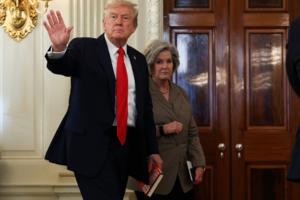
Jackie Calmes: Some truth leaked out of the White House
There is a Santa Claus. There is light amid the darkness. Vanity Fair's two-part chronicle of interviews with Susie Wiles, President Donald Trump's heretofore tight-lipped and uber-credible White House chief of staff, is a Christmas and Hanukkah gift to the nation in this holiday season.
By her monthly on-the-record observations to author Chris...Read more

Editorial: Blue states shouldn't resist fight against food-stamps fraud
Blue state governors have demonstrated a reflexive opposition to President Donald Trump. That’s led to some absurd outcomes.
The U.S. Department of Agriculture is working to obtain records from every state about those receiving Supplemental Nutrition Assistance Program benefits. SNAP is the renamed food-stamps program. It helps those with ...Read more
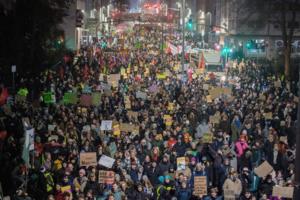
Commentary: Donald Trump wants a resurgence in European nationalism
To fix what he sees wrong in Europe, President Donald Trump has prescribed the continent’s ancient and most lethal poison — nationalism.
Nationalism is a patriotism, a love of one’s own country, that has curdled into a hatred both of other countries and of minority groups at home. In the 20 th century, nationalism was the driving force ...Read more




















































